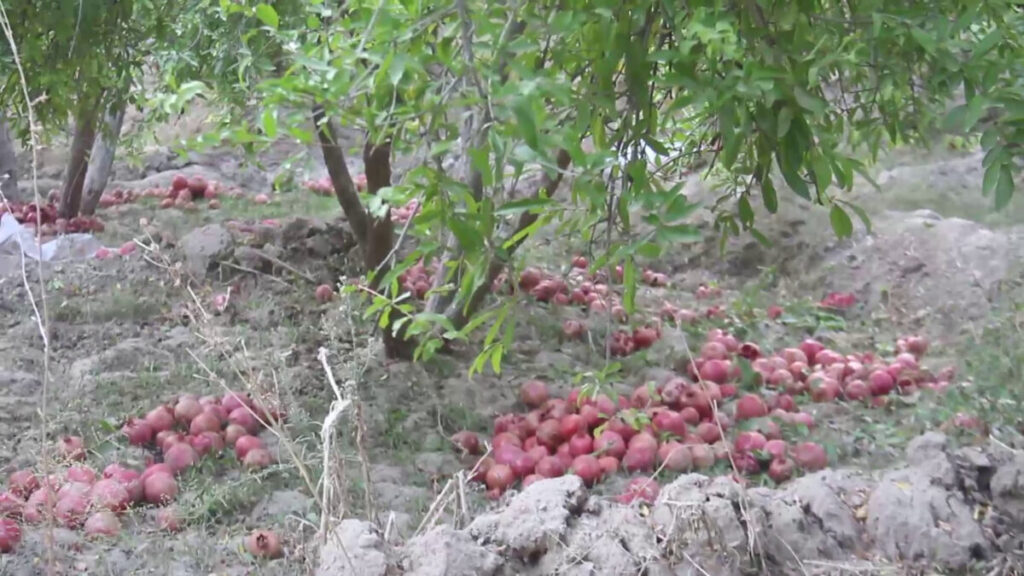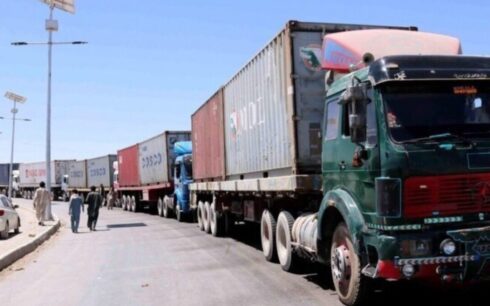Some farmers in Kandahar voiced their economic woes as they rely on pomegranate cultivation as their primary source of income. This year, the absence of suitable markets during the peak pomegranate season has significantly impacted their livelihoods.
Kandahar, renowned as one of Afghanistan’s major pomegranate producers, witnesses a growing demand not only domestically but also on the international stage. However, the challenge lies in finding viable markets for their produce.
A significant part of Afghanistan’s exports is conducted through border towns, especially neighboring Pakistan, which has historically used trade as a leverage point in its relationship with Afghanistan.
Farmers in the region contend that Pakistan routinely closes its borders to Afghanistan’s agricultural products during fruit and vegetable seasons, causing substantial financial losses.
“We are suffering significant losses due to border issues. Transportation becomes expensive, and our struggles intensify when trucks are held at the border,” lamented Mohammad Omar, a local farmer.

Another farmer, Sayidullah, echoed these concerns, urging officials to facilitate smoother transit for their produce to reach international markets promptly. He highlighted the consequences of delays, saying, “When our products are delayed on the way for two to three months, they arrive at their destination in a deteriorated condition.”
The Head of the Taliban’s provincial Department of Commerce and Investment, Mohammad Sediq Mohmand, revealed that approximately 33,000 tons of pomegranates have been exported to Pakistan, with plans to expand to the Indian market. He explained, “We have exported 33,000 tons of pomegranates to Pakistan. In the coming days, we are set to initiate the export of pomegranates to India.”
The challenges faced at the Spin Boldak crossing have emerged as a major obstacle to pomegranate exports, further influencing market prices.
Figures show that pomegranate cultivation covers over 15,000 hectares of land in Kandahar, set to yield more than 288,000 tons of harvest this year.
Agriculture and farming remain pivotal to the livelihoods of people, particularly in rural areas of the country.





